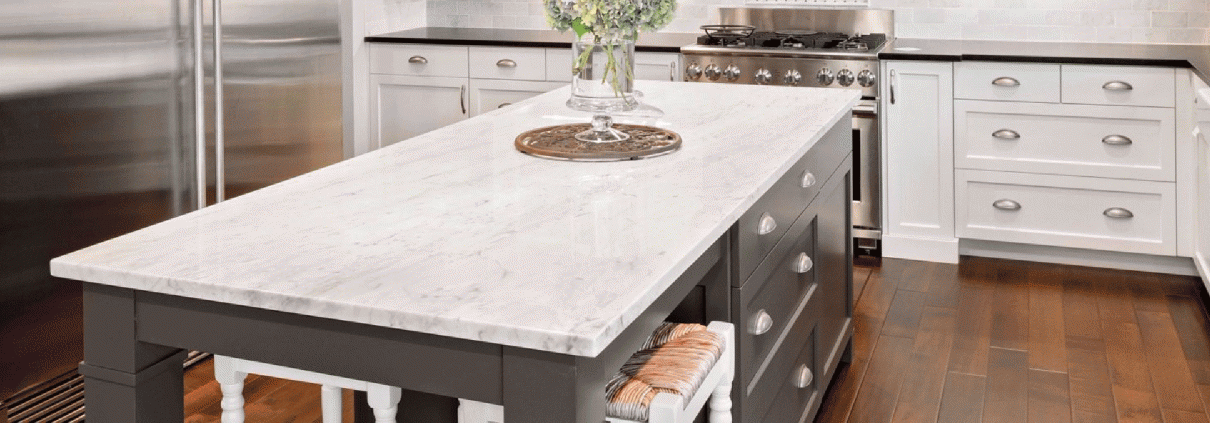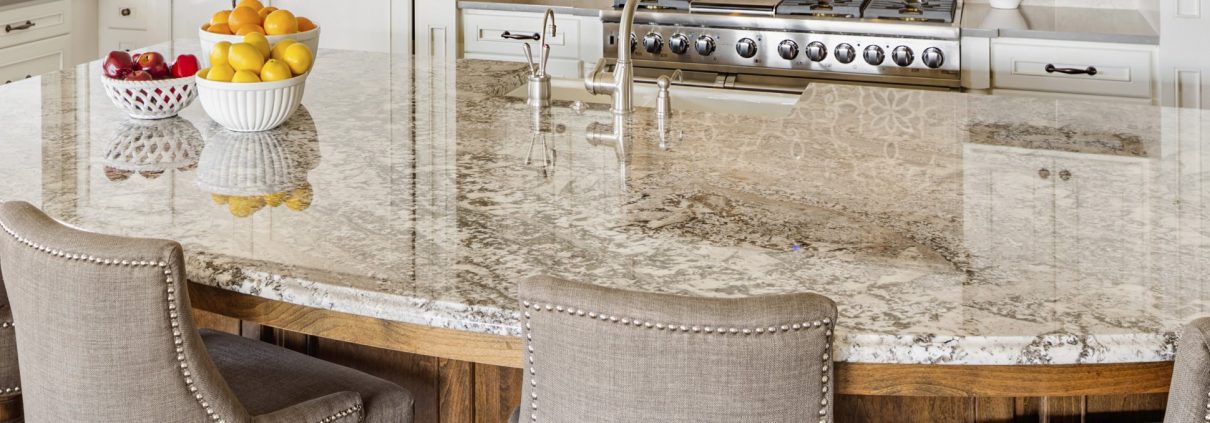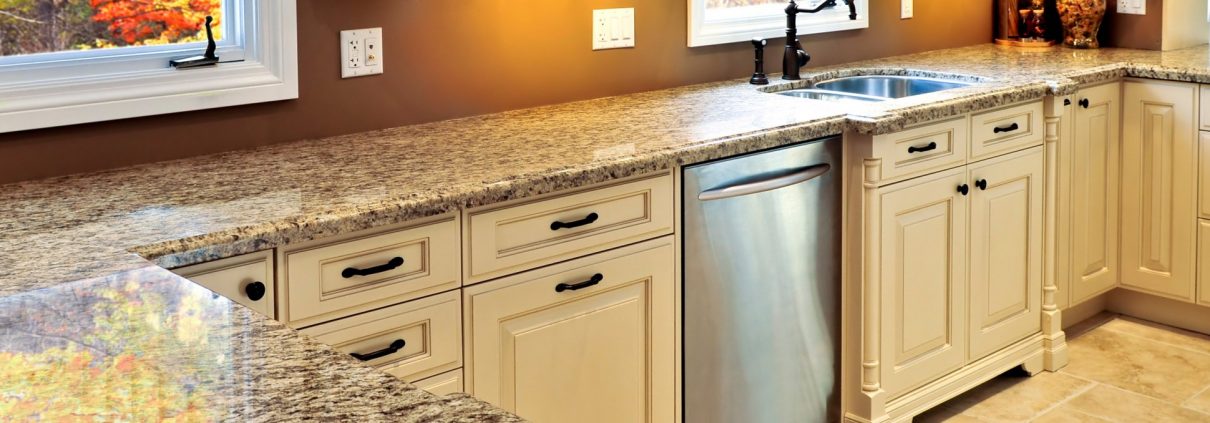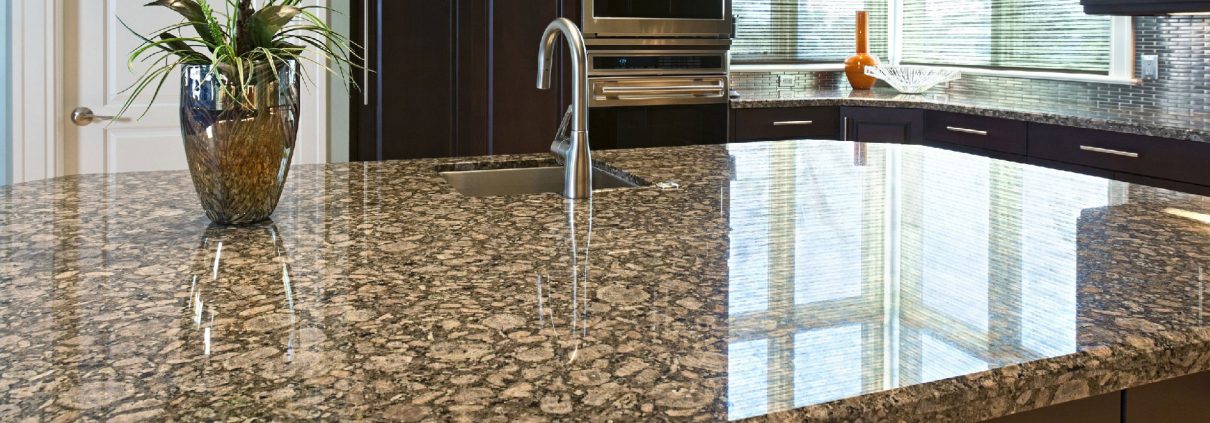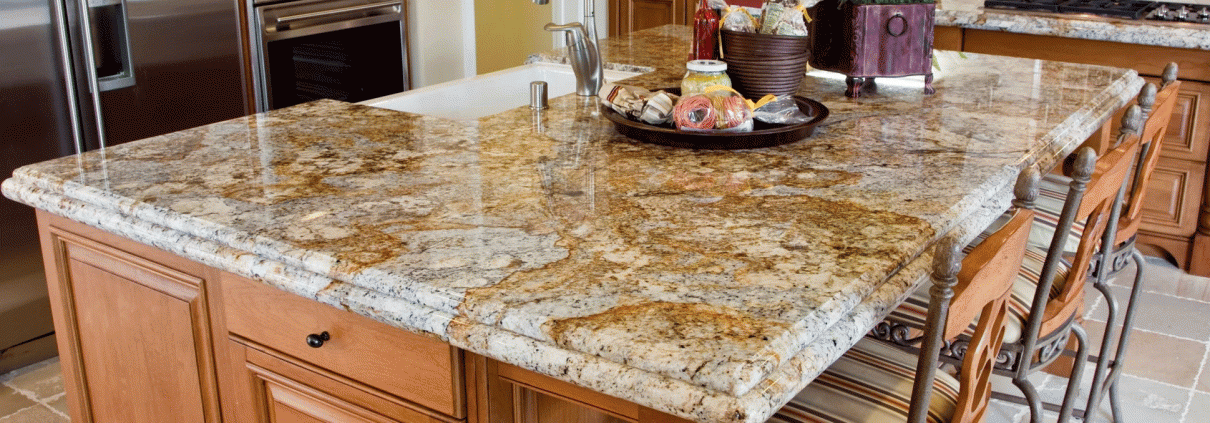What’s the difference between marble and granite?
Although both are stones and both are quarried from the earth, granite and marble (and marble’s relatives – limestone, onyx, and travertine) are very different from each other. The greatest difference lies in the porosity, softness, and durability of marble when compared to granite.
Do I have to buy the whole slab?
Buying slabs are similar to buying fabric. Like a seamstress or tailor, Saw Tech buys the raw material and sells you a completed installation. How much material needed is determined by the layout and the amount of waste. Saw Tech will lay out your job in a way that will minimize the amount of waste material while maximizing the natural beauty of veining and pattern.
Why are some stones more expensive than others?
Availability, locations of quarries in the world (due to transportation expenses), the rarity of the color, and the amount of labor required to extract the stones all affect the price of natural stone. Higher price doesn’t mean higher quality. All natural stones that Saw Tech carries, regardless of price, are of the same high quality unless specifically noted in your contract.
What is “honed” stone?
Granite, marble, or limestone that is honed has a matte or satin finish, rather than a high reflective polish. One feature of honed marble is that it doesn’t show etching or wear patterns on floors as readily. It is preferred by some because “honed” stone has a softer and less formal appearance than polished stone.
Why is granite good for kitchen counters?
Granite is highly resistant to scratching, cracking and staining, and is impervious to heat. Daily kitchen activities pose no problem and it can take a hot pot without the use of a trivet. This makes granite an ideal choice for countertops.
Can granite be damaged?
Like any solid surface, high impact blows can harm granite. Because of its crystalline structure, it can chip if subjected to sharp hard objects. But repair is possible – a chip can be filled with a granite dust and epoxy mixture.
Can granite crack?
Not with ordinary use. Granite is most susceptible to cracks during shipping and installation. Normal use will not overstress this durable material. (Normal use does not include standing on the countertops!)
Can you scratch granite?
In general, it is very difficult to scratch. Granite is one of the hardest stones in the world and is highly resistant to scratching in ordinary use. A knife blade will not scratch granite. It can be scratched by another piece of granite or with specially sharpened tools designed to work with granite-like tungsten and diamond blades.
Can I cut on my granite countertop?
Only if you want to ruin your good knives! Granite is harder than your knife blades and will dull them very quickly if you use the countertop as a cutting surface. Always cut and chop on a wooden or plastic cutting board.
Does granite stain?
All stone is porous to some extent. A few colors may absorb some moisture with prolonged contact compared to others. For example, a puddle of water left on the counter, for some colors, may show a dark spot when the water is wiped away. Usually, no evidence remains once the liquid is removed and the granite dries. A stone sealer is highly recommended for all granite after installation. Some stones are more porous than others, so Saw Techs uses a penetrating sealer to prevent stains from oil, wine or other liquids from soaking into the surface.
Does granite burn?
No. You can’t burn granite with ordinary use. It is perfectly okay to set hot pots or pans directly from the stove or oven onto granite.
How do you take care of granite?
Warm soapy water will do the trick. You can also use cleaners specifically formulated to help clean and protect stone surfaces.
I’ve noticed some granites have pits on the surface - will I have these on my kitchen counters?
Granite, which is crystalline in structure, always has tiny pits – spaces between the various mineral crystals. Granite sometimes has natural fissures as well. These may look like cracks, but are not structural defects, and are a naturally occurring result of the immense heat and pressure that formed the granite eons ago. These characteristics are part of the natural beauty of stone and will not impair the function or durability of the material. A product of nature cannot be expected to look manmade.
Will my kitchen have seams?
Not if we can help it! Saw Tech makes every effort to minimize seams. Unfortunately, due to the limitation of slab size and slab yield, seams on a granite countertop are sometimes necessary and unavoidable. On average, granite slabs are approx. 110″x60″, though, in some colors, 120″ slabs are not unusual. The visibility of seams will depend on the granularity, color, and pattern of the stone. Seam locations are determined by Saw Tech based on cabinet supports and slab yield. If you would like to have input in seam location, you must notify your sales associate up front prior to fabrication and are welcome to come to the shop to lay your templates on top of the slab. Otherwise, Saw Tech will use our best judgment based on years of experience installing countertops. Our sales associates will help to explain the seam process in further detail to you.
Also, for clarification, take a look at the kitchen displays we have throughout the showroom. Most contain seams.
Can I use marble on my kitchen counters?
Yes, but we don’t really recommend it. Please be aware that marble, limestone, and travertine are calcium carbonate, and their polished surface is more vulnerable to household acids including vinegar, mustard, ketchup, citrus, and a host of other food-related products. These acidic substances cause a chemical reaction, which will remove the polish. Additionally, marble and limestone can be scratched more easily by kitchen knives than harder stones such as granite.
Marble does make a perfect pastry slab; it’s perfectly smooth, and its cool surface is ideal for rolling out dough and pie crusts.
What is etching?
Etching happens when acid in some form comes in contact with a polished marble or limestone surface. This causes a chemical reaction which removes the polish or can roughen the surface of honed marble or limestone. Granite is impervious to any common household acids.
What’s the best way to clean marble and other soft stones?
The old rule of thumb is never to use anything you wouldn’t use on your hands. Never use powdered cleansers or abrasive pads to clean your stone. Even “soft scrub” type cleaners contain pumice, which is powdered volcanic stone and might damage your stone countertops or floors. Never use any product which is acidic; this includes substances like ammonia or many common liquid cleaners such as Windex. You should always use sealers and cleaning products designed specifically for natural stone. There are excellent stone-friendly (and user-friendly) stone care products available at Saw Tech.
Get a Free Estimate!
Want a new countertop? Looking for someone who’ll do countertop design? We’ll take up your process from start to finish, and give you a guaranteed job. Get in touch with us to request a free estimate.

